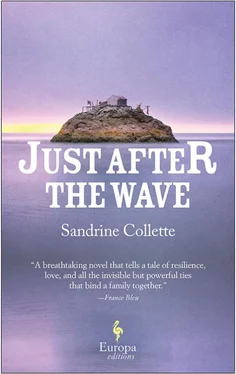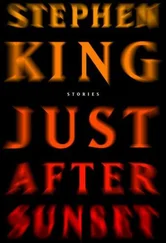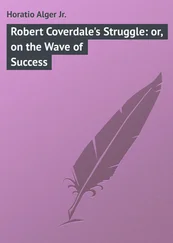But Madie didn’t believe it, she really didn’t, and there was no comfort for her. She refrained from saying how, on the contrary, years ago, on the other end of the planet, there was land that had been devoured by the desert, and all the people had fled, and the rain never ever fell again, and no plants ever grew again, to bring the people back. Those lands had died under the sun, for good, the same way that now their own fields had been drowned, forever, six days earlier. The waters were no longer rising, but they weren’t receding, either, as if the ground had been covered with an impermeable web, and nothing could budge. Everything was frozen. There was no end to Madie’s worry.
But she pretended everything was all right, and went on smiling. She didn’t really have to try very hard, to be honest: she loved her little children, and even her idiot of a husband who so stubbornly hoped the water level would drop. She looked at them and knew that her life had meaning because she was there with them all, and that they had miraculously survived the huge tidal wave. Her kids were laughing in the morning sunlight, holding hands as they ran outside before scattering over the three and half thousand square yards which were, henceforth, nothing less than their entire world—they were right when they said as much, at that moment their mother was redrawing the horizon, there were eleven of them, just eleven in the whole world. And all at once she forgot her anxiety, she forgot nostalgia. Her entire body trembled for them alone, the nine little children she’d brought into the world, and with their father she had laughed for joy every time it happened, she mustn’t give up, ever, for every single one of her children justified her efforts, her fatigue, her constant readiness.
When Madie’s thoughts took this turn, she would begin to hum, overcome with joy. The kids came to listen and she sang nursery rhymes, and they joined in, they knew them all, sang them in the evening to fall asleep in their bedrooms, where they left the doors open so that light, sounds, and life itself would move around them, never mind if they were late to bed. Their father would come closer, too, drawn by their joyful cries, and he’d lead their mother in a farandole, and they’d instantly do likewise, in such a way that all together they performed a strange disorderly dance. From a distance it might have looked like some shamanic rite or a slightly demented procession, when it was nothing more or less than a very short and very wonderful moment of happiness.
* * *
And so, to prove the mother right, and destroy all their hopes, on the seventh day the waters began to rise.
* * *
It began with the look in the father’s eyes.
Just one look, and Madie knew. She closed her eyes, he didn’t need to say anything.
Because on that seventh morning, when she looked outside, the rock she used as a landmark had vanished. She didn’t want to believe it. She didn’t want to look again, either, she preferred doubt and anxiety to any terrible certainty. That would come soon enough.
It would come from the father: she knew that, too.
Just a murmur, maybe because things seem less terrifying in a hushed voice:
“Oh, bother.”
And even though Madie knew, she couldn’t help but repeat what he’d said, also in a murmur, Oh, bother, what?
Looking out at the dawn that day, Pata had felt the shock right to his heart. He had come away pale, his legs trembling: of course he had to tell the mother.
And she went and repeated it, because he was being so stubbornly silent:
“Oh, bother, what?”
“The water.”
He didn’t say anything more. He placed his hand thigh-high to show her the water level and Madie stared eyes bulging at his hand. She put her own hand on his to lower it, to conjure fate, in a way, as if the waters might subside at the same time as the father’s hand, if there was a god, if only.
The father lowered his hand and nothing else happened.
And so they kept an eye on the sea’s advance. On the ninth day, the big boulder at the bottom of the garden vanished. The tenth day, the twenty-eight hens and the rooster that had survived the tidal wave awoke with their legs in water, the chicken coop flooded. Louie opened the gate to let them roam free across the island; in any case, the foxes had died long ago.
On the eleventh day the weather began to change. The August heat was stifling, but finally relented during a storm. When they saw the first lightning bolts, and the thunder rumbled far on the horizon with sinister crackling, the children cried for joy. Louie and Perrine, however, glanced at each other, then looked at their father, who was sniffing the air.
“The clouds are yellow,” said Louie.
Pata replied, I know , and the two children knew they had to keep quiet, that the sky was abnormally heavy and the clouds were a threatening ochre: things were not as they should be. Louie dared to ask:
“What shall we do?”
“Get inside the house, all of you. There’s a storm coming.”
“Liam and Matteo aren’t here. They went with the raft to see if the Turpins’ house was underwater, you know, they live on a little hill, too.”
Liam and Matteo: their father was searching for them on the horizon. He had let them go on their own, without telling Madie, the sea was choppy, but they were used to it. And besides, the Turpins’ place wasn’t far. But they must have gone a bit further, to look for the corner of a roof, or a chimney-top, or to play. Teeth clenched, and angry with himself, Pata muttered, Damn kids. But they’d be back. Maybe they’d seen how the sky had filled and were right nearby, hidden by a treetop still piercing the surface, their raft was about to appear—yes, God, make sure they had see the sky.
But the father had every reason to believe that Liam and Matteo were still far away when the clouds gathered and the rumbling of thunder startled him, because the storm arrived in no time at all; from where he stood he could see gray whirlwinds of crazed wind and torrential rain. Ten minutes more and the gusts would arrive at their hill. Pata could already feel his hair clinging to his face, and he parted it with both hands to try to make out something on the surface of the water, hatched with black waves. He had to keep wiping his eyes because of the spray.
Then he saw them.
At first, for a second or two, he hoped it wasn’t them. But who else could be afloat in a rubber raft, when they had not seen a soul since the tidal wave—and the father let out a long cry which Madie and the children heard through the closed shutters in the house, despite the roaring wind, and it made them cluster together at the paneless windows and look through the cracks. It’s them, it’s them , shouted Noah.
The rubber raft was dancing on the waves. Liam didn’t know what to do, with the paddles that no longer obeyed, the waves pounding against them, and the hill just there, out of reach, the water was playing with them, the raft was nearly taking flight, too light, too much wind.
Onshore the father began to bellow.
“Hang on behind, and swim! Swim, otherwise you’ll never get back!”
But neither Liam nor Matteo could hear him. They could hardly make out their father’s figure one hundred yards from there, his eyes full of tears and rain, his figure shouting something else in vain, then spinning round and running.
The father yanked the ropes from their hook on the side of the house.
When he came back to the edge of the water, the raft was almost vertical on the raging sea.
“This way!” shouted Pata at the top of his voice. “Liam, this way!”
He threw the ropes as far as he could across the water. He didn’t know if he’d managed to fling them far enough, but clearly he hadn’t, and Liam couldn’t even see them, and he shouted again, waving his arms, because the kids had to understand.
Читать дальше












